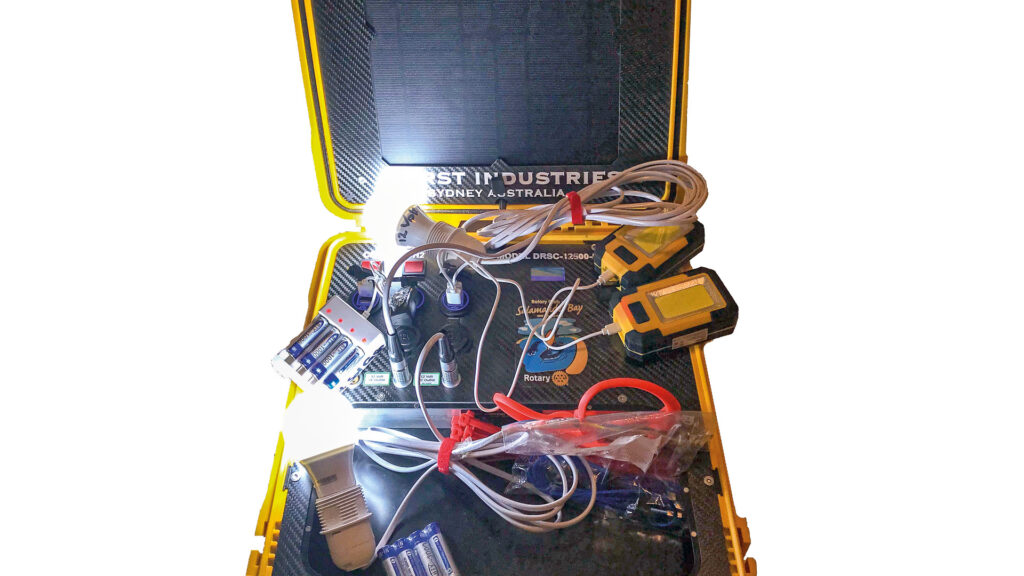
We take for granted the capacity to turn on a light, the expectation that our babies will be delivered in a well-lit, clean room, that our children have the ability to study and work at night (or in the day) under decent lighting. But this is far from the truth for our nearest neighbours in Papua New Guinea.
Through its support of the Spacim Pikinini PNG project, a floating medical clinic onboard the Kula Spirit, members of the Rotary Club of Salamander Bay, NSW, have seen firsthand the many issues facing mothers and children in PNG – a country with one of the highest maternal death rates in the world and less than two hours flying time from Cairns, Qld.
Only 13 per cent of the population has access to the electricity grid, with an estimated 33 per cent living below the poverty line.
Now, in partnerships with Durst Industries (Aust) Pty Ltd, the Rotary Club of Salamander Bay is working on a solution to bring light to the people of PNG.
The Rotary Solar Case is a compact, high-power battery bank developed first and foremost to provide light in remote health centres, aiding health workers where the availability of electricity is problematic at the best
of times.
The ability to provide portable lights for village birthing assistants is a major priority in areas where women often give birth in village huts or village health centres, where the light from kerosene lanterns or mobile phones is otherwise the best available alternative.
The power pack ensures that wherever there is sunlight there is power to provide light and recharge essential equipment.
Darcy Geale, of the Rotary Club of Salamander Bay, said that while the concept in not new, the redevelopment by Durst is.
“There are currently some 5000 similar units out of the US distributed across Africa, India and Nepal,” Darcy said. “However, these units are prohibitive cost wise to land in Australia, costing more than twice our units target production cost.
“What makes our case unique is its battery capacity, a rugged build with the harsh environment of PNG in mind, and the cost. And while the case has been built with the primary objective of delivering light to remote health centres in PNG, there may be other applications in remote Australia and refugee camps etc.”
The case also has application in regions that have been subject to natural disaster where there has been a disruption to conventional power, providing immediate light and the ability to recharge phones etc. to maintain emergency contact channels.
Initially, three cases have been procured, with two on their way to PNG for a three-month trial. With the assistance of the Rotary Club of Boroko, PNG, the cases will be placed in suitable village locations around Port Moresby. The third case will remain in Port Stephens for demonstrations.
The Rotary Club of Salamander Bay is currently working on a global grant application and a formal community assessment. For more information on the Rotary Solar Case or to organise a demonstration, click here, or email rotarysolarcase@gmail.com.
